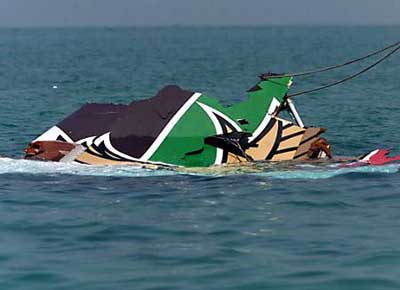Gulf Air Airbus A320-212 plane crash
Manama, Bahrain

Updated on
 The aircraft was conducting a normal approach to runway 12 at Bahrain International Airport with autopilot/flight director
disconnected upon visual contact with the runway. Approximately 1 NM from touchdown, at about 600 feet AMSL and at an
airspeed of 185 kts, the crew requested a left-hand orbit (360° turn) because they were too high and fast on the approach.
During the tight (36° bank angle) left hand turn the flaps were fully extended and the landing checklist completed.
The aircraft was conducting a normal approach to runway 12 at Bahrain International Airport with autopilot/flight director
disconnected upon visual contact with the runway. Approximately 1 NM from touchdown, at about 600 feet AMSL and at an
airspeed of 185 kts, the crew requested a left-hand orbit (360° turn) because they were too high and fast on the approach.
During the tight (36° bank angle) left hand turn the flaps were fully extended and the landing checklist completed.
When the aircraft crossed the extended runway centerline the crew reported they wanted to abort the landing. A controller
gave the crew clearance to climb to 2,500 feet at a 300° heading to prepare for another approach. The plane's speed began
increasing to 185 kts as it began to climb to 1000 ft in a 5° nose-up attitude. During the go-around at approximately 1,000
ft, the aircraft entered a rapid descent, 15° nose down. As the GPWS sounded, the captain ordered the flaps to be raised
and moved the sidestick back. The A320 impacted the sea at a 6.5° nose down angle, about 1NM north of the airport.
The plane's last recorded airspeed was about 280 knots. All the 143 people onboard were killed.
Investigations concluded that the causes of the crash are:
- The captain did not adhere to a number of SOPs; such as: significantly higher than standard aircraft speeds during the descent and the first approach; not stabilising the approach on the correct approach path; performing an orbit, a non-standard manoeuvre, close to the runway at low altitude; not performing the correct go-around procedure; etc.
- In spite of a number of deviations from the standard flight parameters and profile, the first officer (PNF) did not call them out, or draw the attention of the captain to them, as required by SOP’s.
- A perceptual study indicated that during the go-around after the orbit, it appears that the flight crew experienced spatial disorientation, which could have caused the captain to perceive (falsely) that the aircraft was ‘pitching up’. He responded by making a ‘nose-down’ input, and as a result, the aircraft descended and flew into the shallow sea.
- Neither the captain nor the first officer perceived, or effectively responded to, the threat of increasing proximity to the ground, in spite of repeated hard GPWS warnings.


